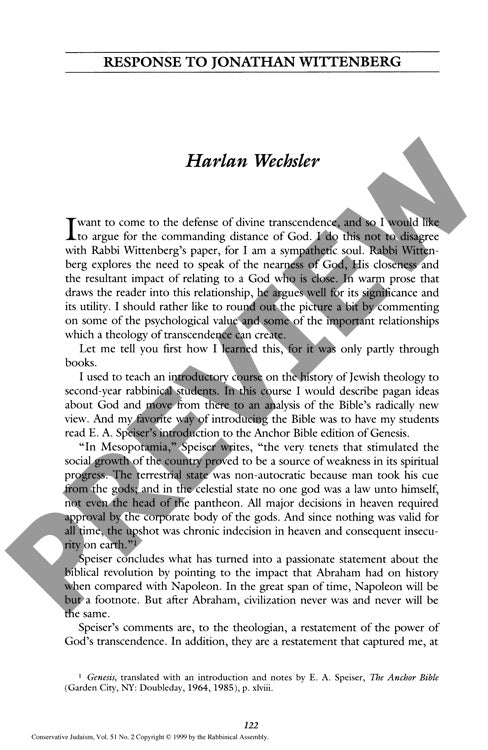Response to Jonathan Wittenberg
Couldn't load pickup availability
Divine transcendence - the concept of God as distant and absolute - serves as a vital counterweight to divine immanence in Jewish theological thought, offering crucial psychological security and existential comfort to believers. Drawing on E.A. Speiser's comparative analysis of biblical and Mesopotamian religious concepts, this theological investigation combines personal narrative, historical analysis, and theological reflection to examine how transcendence theology shapes the human religious experience. The psychological and existential benefits of believing in a transcendent deity emerge through fostered qualities like gratitude, humility, and recognition of human dependency - attributes that strengthen interpersonal relationships and help individuals confront mortality and suffering. While human existence remains inherently vulnerable, divine transcendence provides stability through the constancy of natural law and general providence. Rather than competing theological frameworks, transcendence and immanence emerge as complementary components of Jewish religious discourse, each illuminating distinct aspects of divine-human relationships. This theological perspective proves especially valuable in pastoral contexts addressing human suffering and mortality, while preserving the biblical emphasis on God's fundamental otherness and commanding authority.

More Information
-
Physical Description
-
Publication Information
Published 1999
ISBN
-
Publication Credits
Harlan Wechsler

